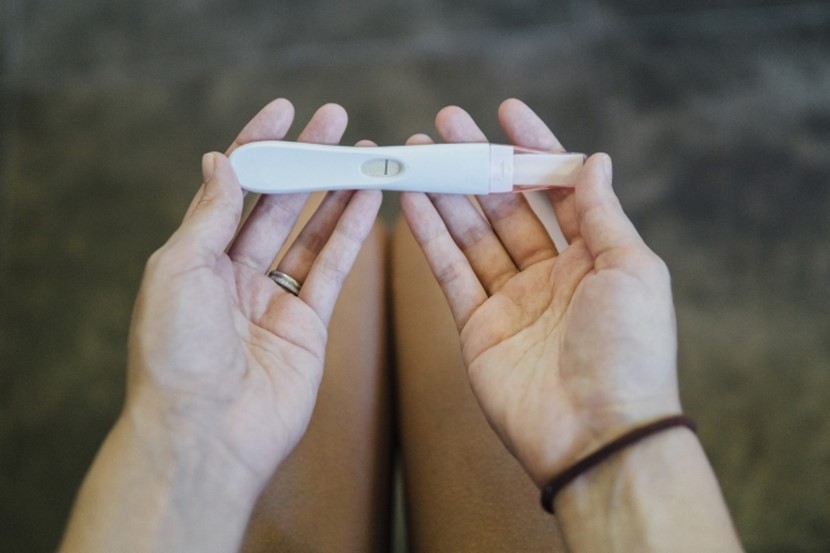Let's discuss infertility

10% of couples will be unable to get pregnant after a year of trying, they may be considered infertile.
When were modern infertility treatments first used?
In the late 1970's.
What is fertilisation and how does it work?
Fertilisation
• Fusion of a males sperm to a females ovum (egg).
• This fusion results in a zygote, the genetic makeup of this zygote is half from the mother and half from the father.
• There is continuous cell division, then this embryo implants on the lining (endometrium) of the uterus. This is where is will stay for 40 weeks.
Sperm
• Produced in the testes, in the male. This production begins at puberty.
• During sexual intercourse these sperm are deposited into the vagina from the penis during ejaculation.
• In 3mls of sperm (which is the average quantity ejaculated) there are 250 million sperm. These sperm can live for two days in the vagina
Ovum (eggs)
• Produced in the female and are released as part of the menstrual cycle which lasts an average of 28 days.
• From puberty one egg is released every four weeks and travels through the fallopian tubes.
• It is in the fallopian tubes that the egg and sperm met.
Fertilisation
After the sperm and ovum have met in the fallopian tubes they travel for five days into the uterus where it becomes implanted in the endometrium. It is the endometrium that shreds to produce menstruation if pregnancy does not occur. This shredding is due to the endometrium building up extra tissue and blood, which is meant for implantation.
Ovulation
This occurs on the 14th day of the 28 cycle is fertilisation is possible for 24 hours.
When am I considered infertile?
If you have sexual intercourse at the time of ovulation every month there is only a 22% chance that you will become pregnant each month. Therefore you will not be considered for infertility investigation until you have been trying to get pregnant for at least one year (do not leave it this long if you are in your 30's as time is a factor at this age). There are many causes for infertility and these may apply for either party. In 20% of infertile couples a cause will not be found.
How will infertility be diagnosed?
Laboratory tests, consults with an infertility specialist, minor surgical procedures for the female.
Possible Causes for Infertility
Ovulation Problem:
Failure to ovulate. Failure for body to produce adequate levels of progesterone after ovulation.
Cervical Problems:
The mucus that is made by the cervix may not be suitable for sperm to swim through.
Uterine Problems:
Problems with the shape of the cavity, such as polyps, scar tissue or fibroids. This can prevent the embryo from implanting.
Peritoneal Problems:
The pelvic cavity may have adhesions and endometriosis.
Tubal Problems:
Your tubes may not be open or may be damaged.
Semen Problems:
Sperm numbers, sperm motility and sperm morphology.
What is idiopathic or unexplained infertility?
This is when tests for infertility are unable to determine what the cause for infertility is. It happens to one in ten infertile couples.
What should I do if I have unexplained infertility?
• You may conceive naturally if you just keep trying.
• Infertility treatment could be started.
• Deciding to start infertility treatment can provide hope for a couple that would really love to have children it is however a lot of hard work, physically and emotionally.
Other Possible Reasons for Unexplained Infertility
• Psychological
• Mycoplasma infection
• Deficient luteal progesterone
• Sperm motility
• Uterus adhesions
• Undetectable endometriosis
Sex and Infertility
It is inevitable that infertility will have an impact on your sex life. You may experience feelings of guilt, resentment, or you may become closer to your partner by mutual hope. You may lose the pleasure that you once had for sex through years of trying to conceive.
You may experience problems with self-esteem, which reflects on your sexuality.
There are many traditional ideas that if you are fertile you are a better person, even if we do not associate with these feelings consciously they will still effect us and have an impact on you if you discover you are infertile.
The feeling that you may experience when discovering that you are infertile may be grief or the feeling of loss.
If a couple decides to use another's sperm donation there must be a reassessment of ones sexual identity to assist in the acceptance of the baby having different genetic make-up than that intended.
These are some times that you may experience feelings of inadequacy about your sexuality.
1. Attempting pregnancy.
2. Investigating the possibility of infertility.
3. Treatment of infertility.
4. Menopause or independent children leaving the home.
Click here to read one couple's personal and emotional journey through infertility, from the loss of one baby, to the miracle birth of another.
Click here to read one woman's personal account of her mission to climb what she calls "needle mountain" - the ups and downs of IVF.

